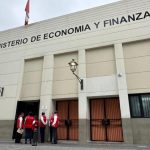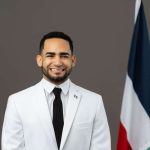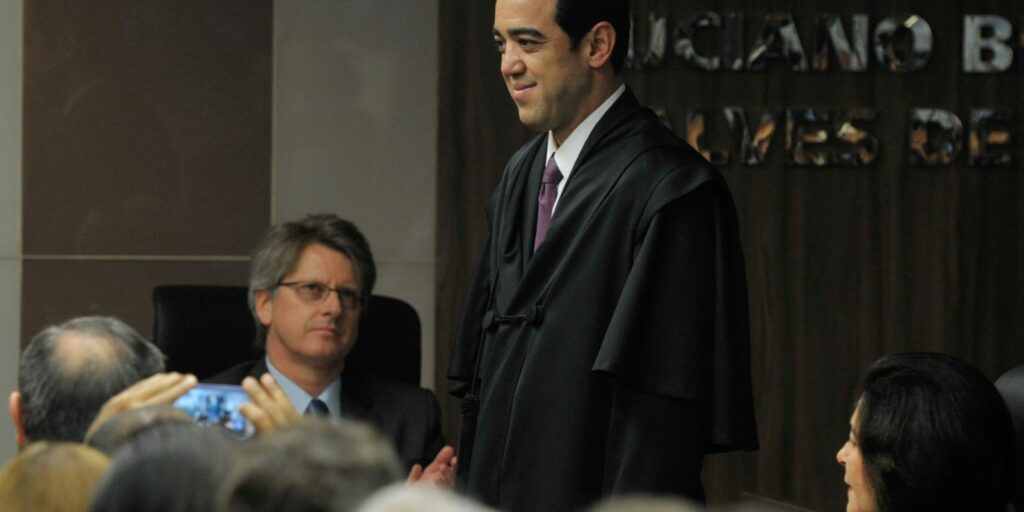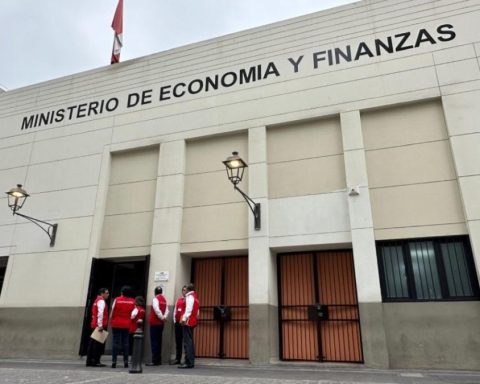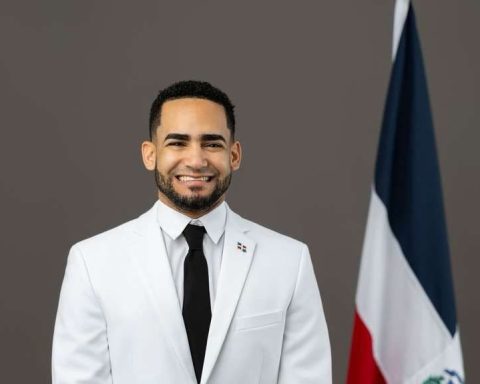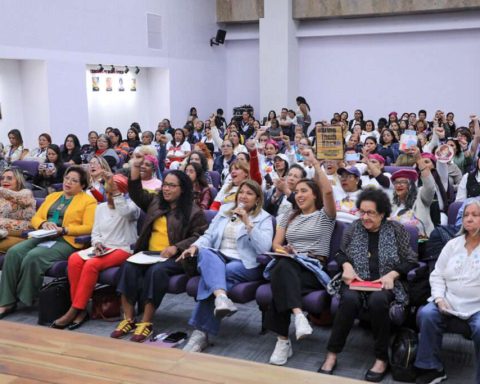Five names on the ballot, with five different approaches to criminal prosecution or, at least, with nuances between them. And this, despite the fact that their diagnoses are consistent with respect to the depth of the legitimacy crisis that affects the Public Ministry. There are five lawyers who, from now on, will be put under the microscope of La Moneda to offer the Senate the person who, in theory, has to get the institution out of the morass in which it finds itself after seven years of management by Jorge Abbott , whose election was a devastating blow to an organization that is key to facing the great challenges in public security.
After a marathon day in which the seventeen candidates for National Prosecutor announced their credentials and priorities, the Plenary of the Supreme Court surprised with two nominations that were not in the calculations of anyone –or few–. Angel Valencia and Rodrigo Rios. The first, without a doubt, remained in the pole position thanks to an extensive network of links with the political world, ranging from the former minister of Sebastián Piñera’s second term, Alberto Espina (RN), to former Foreign Minister Heraldo Muñoz (PPD), or the current Minister of the Interior, Carolina Tohá (PPD) .
The irruption of the covered
Ángel Valencia Vásquez is a former prosecutor closely linked to figures on both sides of the political spectrum. For now, he worked for a short time in the Prosecutor’s Office to go to work at the Espina, Zepeda & Acosta studio, a firm led by former Minister of Defense and former parliamentarian Alberto Espina Otero (RN), today a member of the State Defense Council (CDE), as well as the expert lawyer in commercial law Carlos Zepeda Hernández, now deceased. He is a man with “ecumenical” contacts, since he represented Heraldo Muñoz against the electronic newspaper The bookcase, for the publication of an interview with an unknown journalist, individualized as Casto Ocando, who accused him and Mario Desbordes in 2021 of having secret accounts abroad. Ángel Valencia is a very close friend of the president of the Senate, the PS Álvaro Elizalde, without mentioning a curious fact in his resume: he served as executive secretary of the ANFP between 2016 and 2018.
The “covered” assumed in his minute the defense of the former president of RN Mario Desbordes, when he, as Minister of Defense, was sued by a victim of ocular trauma in the context of the social outbreak. The trial lawyer also represented the economist Rafael Garay for the pyramid scheme he committed through his Capital Development investment fund, on which occasion he denounced the journalist Iván Núñez, one of the victims of the commercial engineer, for threats. That life offers twists full of irony, there is no doubt, since Valencia sank the defense of the economist, who was condemned by José Morales, his great adversary in the next stage. Likewise, in the environment, his closeness to former prosecutor Manuel Guerra and former Minister of the Supreme Court Lamberto Cisternas stands out.
He also assumed the defense of Bruno Villalobos, former general director of Carabineros, to whom a case was opened for embezzlement of public funds; in addition to Luis Barría, the former judge of the Rancagua Guarantee Court, who was prosecuted for sexual abuse against a judicial official.
Valencia was the big surprise of the day, since its position as the first majority, along with the head of the Central North Prosecutor’s Office, José Morales (both with 17 preferences), suggests the possibility that the right wing preferred to pass on Morales to place its hopes in Valencia. Likewise, the lawyer would have the approval of the Minister of the Interior, Carolina Tohá, and of another influential in the world heir to concertacionismo: Felipe Harboe.
Less backs would have the criminal lawyer and former deputy prosecutor of the North Central Metropolitan Regional Prosecutor’s Office, Rodrigo Ríos Álvarez, who came last on the ballot that will go to La Moneda, adding three votes. Neither of them offered statements to the media.
Meanwhile, the prosecutor José Morales thanked the support received, although the high vote obtained by Valencia may affect his chances in the remainder of the process. “It is an honor that they have chosen in a majority way for me to integrate the quina, and nothing more to say. The truth is that we have a program, we have ideas to present to the Public Ministry, and contribute in a better way to citizen security”.
Likewise, he pointed out that the fact of having obtained one of the first two majorities in no case constitutes a plus in the face of the upcoming milestone: the election of the candidate by La Moneda, who will then have to be ratified in the Senate. Perhaps you are already aware of a trivia fact, but not a minor one: never, in the history of the reform, has someone with a first majority been anointed as National Prosecutor. In 2007, without going any further, Sabas Chahuán was elected by former President Michelle Bachelet with the third majority. In 2015, Bachelet herself chose Abbott, who was fourth on the list.
The UDI, crouched
Among those who listened carefully to the presentations, there was a figure who will be key in the last phase of the process: Senator UDI for Tarapacá and Vice President of the Upper House, Luz Ebensperger. The member of the Constitution, Legislation and Justice Commission did not go unnoticed and her visit was seen at least as an irregular situation, bordering on inappropriate, given that the role as senator is exercised with the proposal of the President and not before. Several observers of the process, in reserve, commented that her participation seemed more like an act of lobbyespecially when she was accompanied by Héctor Mery, right arm of the former Minister of Justice in the second government of Sebastián Piñera, Hernán Larraín.
“We will see who is the best candidate to resolve this situation, a task that needs leadership and decision,” said the senator, acknowledging what other experts had already advanced to The counter: the existence of a lobby untied. “I am here to avoid lobby, to those who ask for meetings, now with the quinine it will surely be worse. My Republican decision was to come here to meet the candidates and thus not have to receive anyone for lobby. It is good to come here for the sake of transparency”, he added.
In this line, the parliamentarian hinted that the votes in favor of the candidate chosen by the Government will be available to the extent that he designs a clear strategy on a problem that, in his opinion, “one saw in Mexico or Colombia, or in the movies, but unfortunately they are already in Chile, no matter how hard the prosecutors in my region try. But they are alone, ”said the UDI militant, while at the same time one of her co-religionists, the aforementioned Héctor Mery, made arrangements.
The woman who seeks to mark a milestone
Marta Herrera is the only woman in the lineup of candidates. She obtained 9 votes, and although many identify her with Jorge Abbott, the current director of the Legal Advice Unit of the National Prosecutor’s Office has two elements in her favor: she is a woman, a detail that is not trivial for a government that declares itself “feminist”; and she has a long career in the Specialized Anti-Corruption Unit of the Prosecutor’s Office, one of the issues that she urgently needs to combat, as well as organized crime, since both tend to intersect at some point. But there is a candidate who can water down her efforts to become the first female National Prosecutor: the Regional Prosecutor of Aysén, Carlos Palma, who obtained 7 preferences. He is a lawyer highly valued by the ruling party, given his determination to carry forward –and obtain convictions– in the Operación Huracán case. He is, without a doubt, the progressive candidate, but he has a problem: his name would be highly resisted in more conservative circles in the Upper House.
Herrera acknowledged that there are pending issues regarding institutional transparency, which is at the base of the problems faced by the Public Ministry in its two decades of history. After learning of the result, he thanked the ministers who make up the country’s highest court for their trust and pledged his efforts to rebuild the trust of citizens.
“It has me very hopeful, eager for all the years I’ve been in the institution, for all the love I feel for the Prosecutor’s Office, for the system, and therefore I feel very happy and excited at this moment,” he limited himself. to say the lawyer.
Palma, on the other hand, slipped a commitment to a more effective criminal prosecution, one that should be “the central engine of the new period, (because) Chile needs an efficient criminal prosecution and today we are far from that,” he said. “We have a 55% archive (of cases) at the national level, and in the Metropolitan (Region) 69%. We are far from having an efficient system”, he pointed out, clarifying from now on that his hallmark will be the coordinated work with all the institutions linked to public security, which is what he has cultivated throughout his career as a prosecutor.
“There is a way of working that I think is very important, which is joint work, work with all the teams, with the institutions, which makes it possible to bring about change. We verified it in (the Region of) Bíobío, in Aysén, and, of course, there are many particularities in the Metropolitan Region, in the north with organized crime, but by acting together the problem can be addressed in a better way,” Palma asserted. .
The Senate awaits
The seventeen presentations converged on a macro diagnosis with various edges: the Public Ministry is in crisis like the rest of the institutions, as well as its lack of transparency and effectiveness in criminal prosecution, as well as the absence of a clear strategy to combat organized crime with all its territorial peculiarities – from the theft of wood in the south to crimes associated with uncontrolled migration in the north, to cite two examples – have contributed to undermining public faith in the work of the prosecutorial body .
Some candidates took advantage of their opportunity to propose unorthodox measures, some frankly eccentric, such as those proposed by Iván Pavlov, who called for the involvement of citizens in the fight against crime. How? Well, from concrete actions against already consolidated crimes such as the trap and the slam. What actions? One was to encourage people to install GPS devices in vehicles, and “not one, but two” or “cutoff” systems. “Nobody has said a word of education,” he maintained, referring to the exhibitions that preceded him. Ricardo Peña, on the other hand, had no qualms about criticizing the prosecutors involved in public exposure and questioning the dubious quality of the investigative work.
Two other issues present in the presentations were the need to generate a accountability more active and, in line with the accelerated cultural changes that Chilean society is experiencing, introduce different perspectives to improve criminal prosecution, such as the territorial perspective and the gender perspective. Particularly lacerating was the intervention of Cristián Vargas, former Legal Deputy Director of the Internal Revenue Service (SII), who expressed that “one of the most serious aspects of the delegitimization of criminal prosecution is not neutral”, but is “susceptible to be controlled from certain political, economic or social groups, and this has occurred in paradigmatic cases of tax and economic crimes.”
Meanwhile, the lobby The political situation is already unleashed, in a process that is far from abandoning the old practices that have contributed to affecting the image of the Public Ministry.







